Simchas at Shul?
Whether inside the sanctuary, the small chapel or outdoors on synagogue grounds, being in or around the spiritual home returns semblance of normalcy to Jewish lifecycle ceremonies.
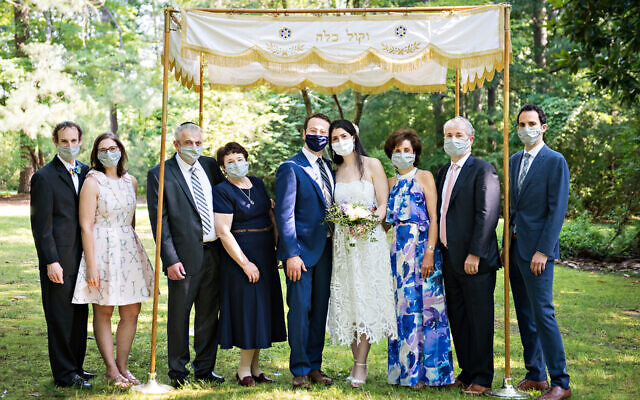
After months of delaying simchas during the pandemic, hoping for a return to the typical year-round schedule, some Atlanta synagogues began offering limited and restricted wedding and b’nai mitzvah ceremonies on synagogue grounds late this summer.
And participating families tired of waiting and delaying, rescheduling and readjusting, opted for smaller gatherings either in the sanctuary, small chapel or outdoor facilities. At least one synagogue had to rethink its plans for opening up the synagogue to simchas earlier this month after a recent spike in COVID-19 cases.
At Congregation B’nai Torah, more than 10 simchas have been held since the pandemic shuttered synagogues in March. The Conservative synagogue used four different approaches for the ceremonies: remote; in the Sandy Springs synagogue’s outdoor garden; in the sanctuary with everyone masked; and with the rabbi in sanctuary and family in the chapel, no masks, communicating through Zoom.
“We’re trying a few different ways of maximizing meaning and safety,” said Rabbi Joshua Heller.
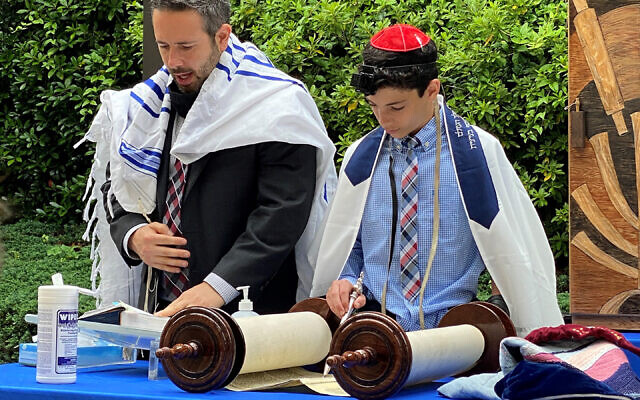
The first in-person simcha during COVID was a wedding held in June in the synagogue’s outdoor gardens with a minyan socially distanced around the chuppah, Heller recalled.
B’nai mitzvah have been held in the sanctuary with everyone wearing masks or if they prefer, the rabbi in the sanctuary and the family in the chapel without masks.
Within two weeks in June, Heller conducted a wedding, two outdoor b’nai mitzvah, one in the sanctuary with masks and another in the chapel, no masks.
The ceremonies included challah, grape juice and the traditional candy throw after the b’nai mitzvah finishes reading the Haftorah, plus all the usual rituals, but no kiddush or party at the synagogue.
“One issue we’ve had to deal with is we made a lot of plans over the summer when things were getting better in Georgia. Unfortunately, it got much worse and we were holding our breath where things were going until the numbers started to go a different way.”
Earlier this month, B’nai Torah had to rethink its b’nai mitzvah protocols, Heller said. “With the recent sharp increase of cases and deaths here in Georgia, we are reversing course on in-person celebrations at the synagogue. We had a bar mitzvah family test positive shortly before their simcha, and aside from their being worried about their health, we had to scramble to switch at the last minute from at the synagogue to remote. They were happy and relieved, but it was still not what I would want anyone to go through.”
Meanwhile, the synagogue had simchas set up through August. “We’re still looking at what options we are going to leave open for in-person, but we would rather have families have time to prepare and practice at home with some peace of mind rather than have to switch everything at the last minute. We will go back to doing more in-person when things calm down a little bit,” Heller said.
“For fall, we are continuing to revise our options with what the committee tells us is safe and what works best for the needs of the particular family. As we do each service, we learn what works well. There are things that are clearly easier to do when we are in the same room or the same building, but we’ve learned how to accomplish the same things even when people are in different places. Basically, we are just learning and reinventing as we go.”
Plexiglass Barriers
Several bar mitzvah and aufruf (pre-wedding) ceremonies, in which the 13-year-old boy or the groom is called to the Torah, have been held at Congregation Beth Jacob this summer since the Orthodox synagogue in Toco Hills switched from outdoor services to indoor ones.
Rabbi Yitzchok Tendler, Beth Jacob’s executive director, estimated about seven simchas had been held by Aug. 1. He said the same social distancing rules that apply to prayer services apply to simchas. Those health precautions include wearing masks and standing 10 feet apart, even further than the 6-foot distance rule that has become the norm elsewhere.
The synagogue had plexiglass shields installed to divide the Torah reader and the person receiving an aliyah to prevent the spread of virus, Tendler said. So far no weddings have been held at the synagogue, which is urging any “non-prayer services or life-cycle events” to be held privately because of the “limitations we have in place on this,” he said.
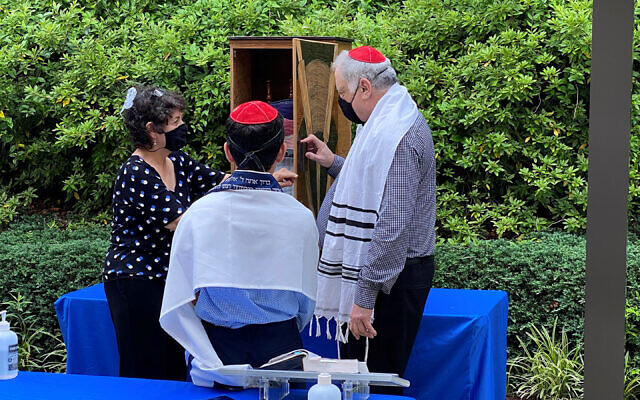
“Even in the main social hall, which is over 5,000 square feet, only 45 family units are allowed at a time.” In addition, everyone has to be masked, including the people leading the prayers, the chazzan and the Torah reader, he said. “Things can change, of course.”
Tendler said the simcha families have been “very understanding. Everyone is extremely eager to work with us and comply with the health guidelines based on what our advisers say we need to have in place. They see the glass half-full,” he explained.
“They are happy to be able to do something. Some enjoy the more intimate ceremony. It can be nice in some ways. It’s very meaningful to them to be able to maintain some semblance of a normal lifestyle. It reminds them of more normal times and better times ahead. It’s always good to look for something to celebrate.”
Perimeter Around Bimah
Earlier this summer the AJT reported about the first wedding – also the first simcha –held in Congregation Etz Chaim’s remodeled sanctuary. The first b’nai mitzvah was held Aug. 8, with several more scheduled throughout the fall. The synagogue is following social distancing guidelines from the CDC and will open up its sanctuary to include the renovated social hall and library, as is typical for high holidays gatherings, so that up to 30 guests can attend the simchas, said Rabbi Daniel Dorsch. Everyone will wear masks and have their temperature checked at the door, submitting their names in advance for contact tracing purposes.
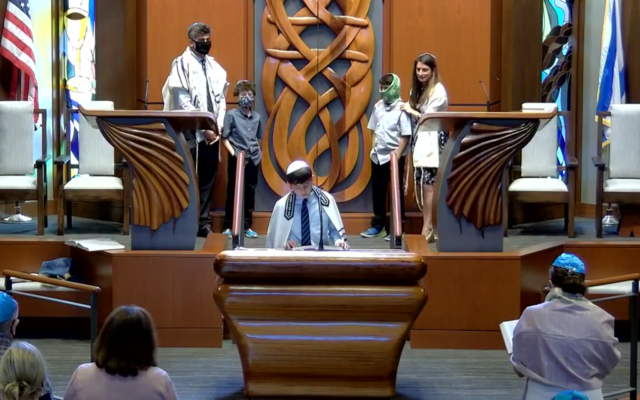
Etz Chaim is also maintaining a 30-foot perimeter around the bimah with no one permitted to sit in the first few rows so those on the bimah can sing without using their masks, Dorsch said.
The service will include all the traditional elements such as the parents presenting the b’nai mitzvah tallit, the b’nai mitzvah d’var Torah and the rabbis giving the b’nai mitzvah a charge based on the parshah.
But as few people as possible will be in contact with the Torah and the podium will be disinfected between uses, Dorsch said.
A new professional-grade livestream camera system that was donated and tested during Shabbat July 25 enables extended family and friends to view the service on Facebook instead of Zoom, the video and audio quality of which weren’t as clear, he said.
Finding Meaning
Rabbi Ronald Segal of Temple Sinai said the Reform synagogue is allowing b’nai mitzvah, wedding and baby namings with a limited number of attendees allowed – up to 20 – “strict social distancing observed, masks required, and temperatures checked.” Segal added that “Families are able to specify who is attending. We will continue to evaluate decisions based upon societal trends and our own experiences.”
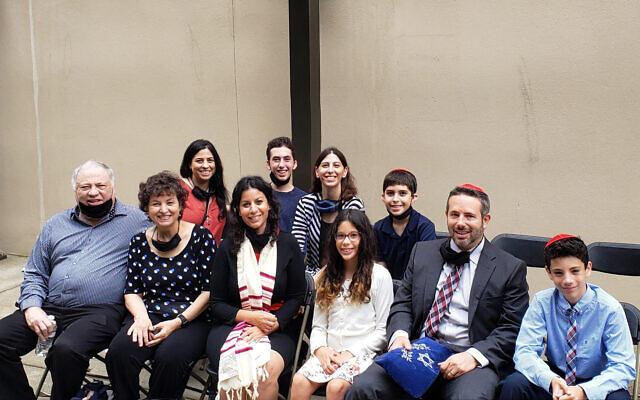
The rabbis interviewed for this story say the families with simchas affected by COVID have found ways to make the experience more meaningful to them. Holding simchas during difficult times helps focus the ceremony, to “get back to what really matters in terms of the family and ritual. Kids are thinking as an adult, making tough decisions about what’s important to them and their families.” In addition, “families have to be very flexible,” Heller stressed.
“People had plans for parties and all kinds of gatherings that did not happen the way they planned.” For those that opted not to delay any further and have a small gathering at the synagogue or remotely at home, “They are finding the final experience is joyous and meaningful. People are appreciative of how the experience turned out.”
The reactions of families about changing their plans have been varied, Dorsch said. “Many feel a sense of loss having to make plans about families coming in for the b’nai mitzvah. We’ve been checking in with them emotionally. They’ve expressed a wide variety of feelings having to do with this. The most prevailing sentiment is loss at the sense of what they hoped and this having to be different.”
“One thing I’ve heard in the time of COVID is that it clarifies what’s important. … It speaks to the enduring spirit of Judaism, even in challenging times.”



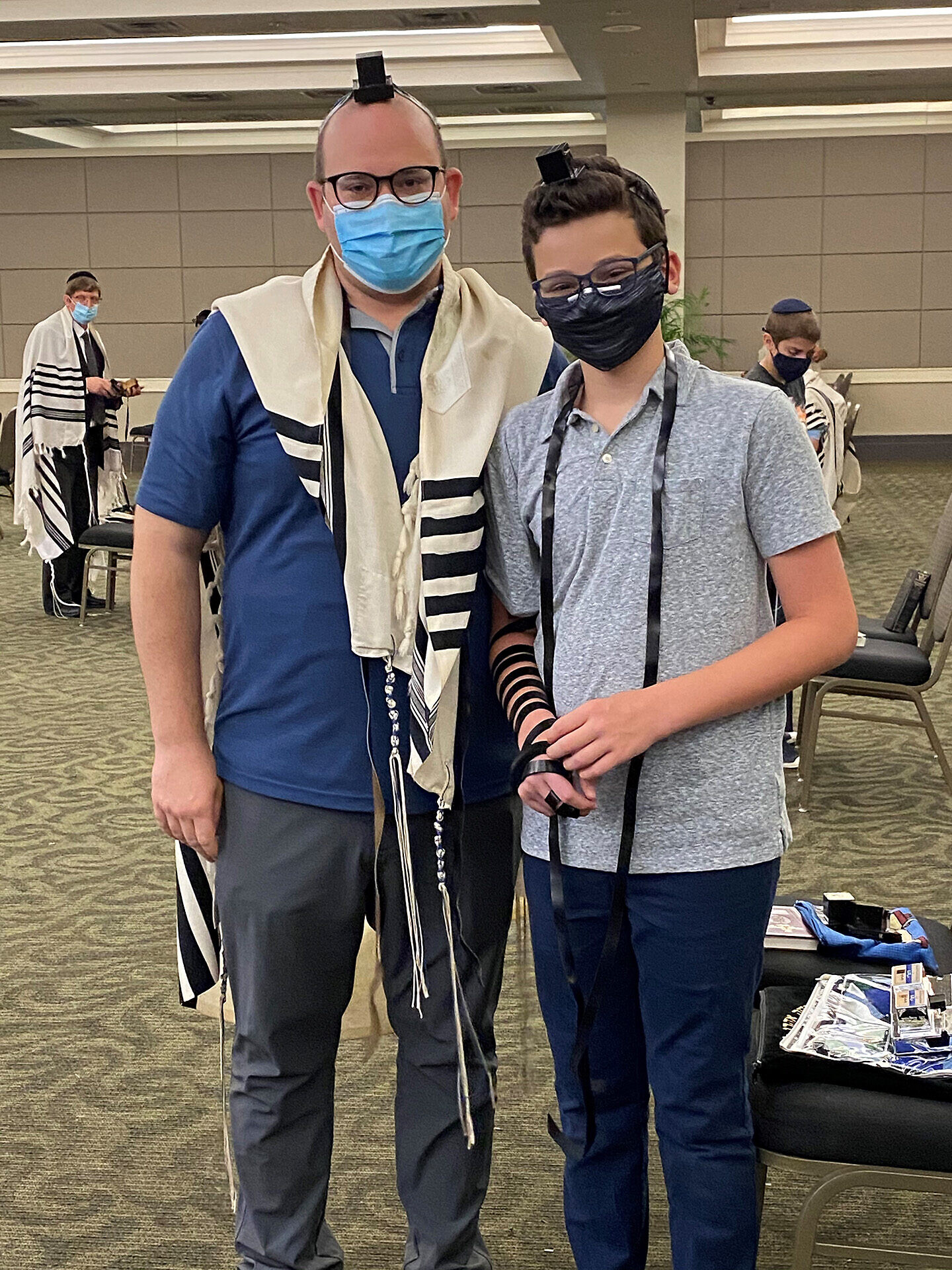
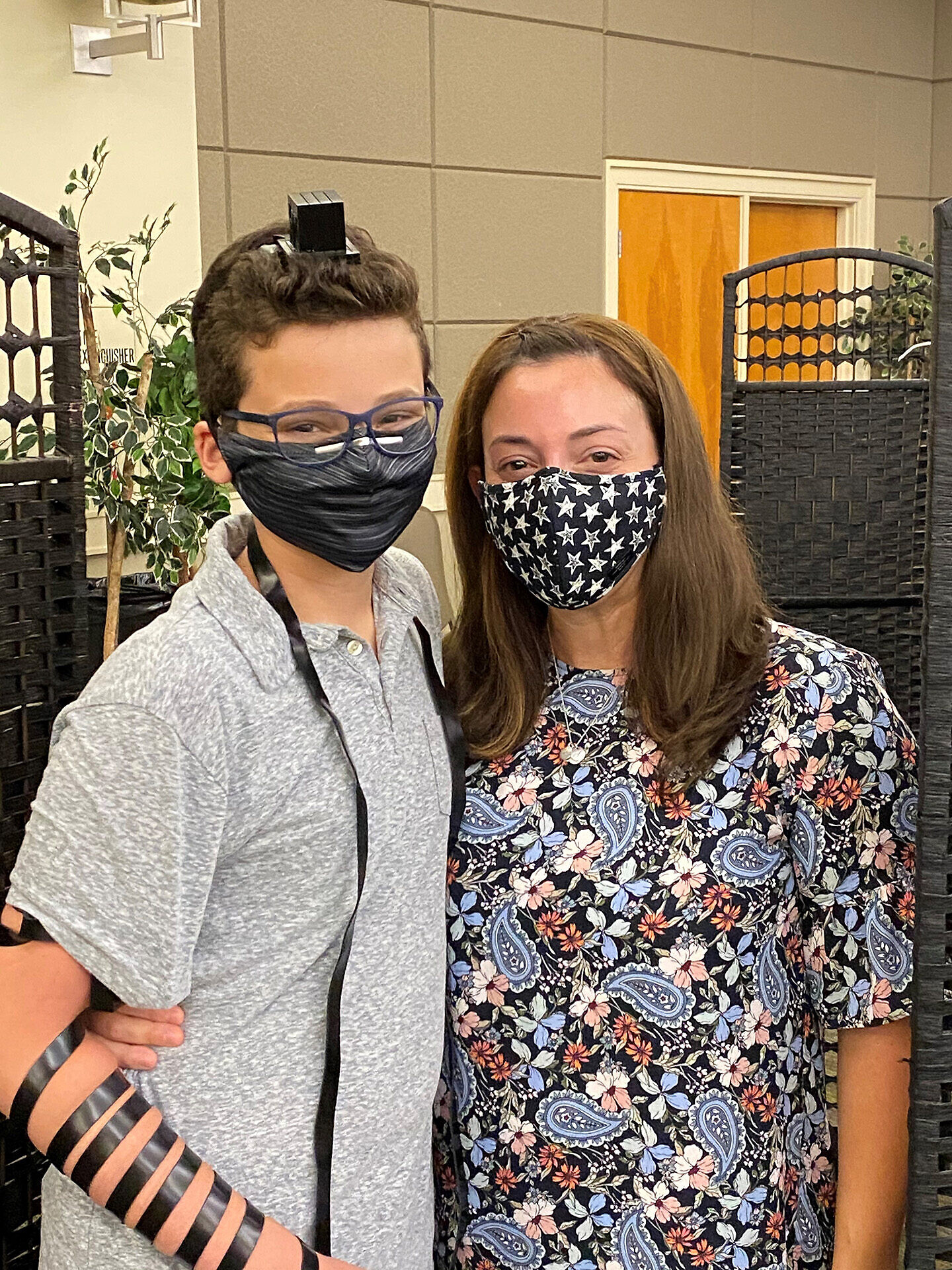
comments